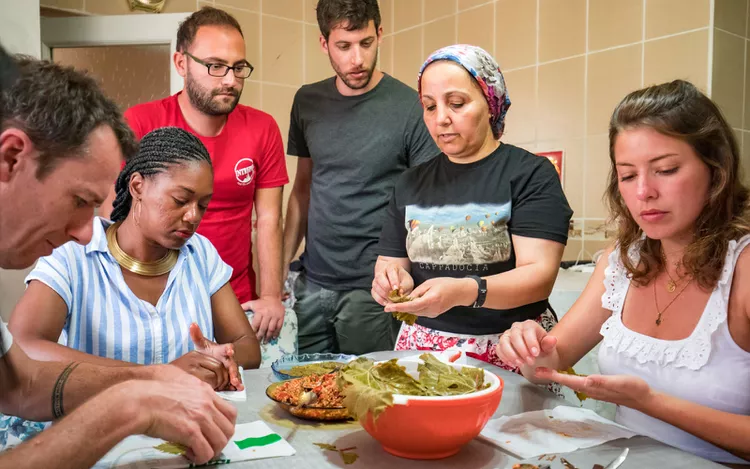The Global Visions Awards honorees in this category can help you build more sustainable travel habits right from the moment you plan your next trip.
The Global Vision Awards aim to identify and honor companies, individuals, destinations, and organizations taking strides to develop more sustainable and responsible travel products, practices, and experiences. Not only are they demonstrating thought leadership and creative problem-solving, they are taking actionable, quantifiable steps to protect communities and environments around the world. What’s more, they are inspiring their industry colleagues and travelers to do their part.
Adopting more sustainable travel habits is easier than you might think, and it can start with the simple act of planning your trip. It’s especially simple if you support one of the Global Vision Awards honorees in this category. The three companies — one online travel agency and two tour operators — give travelers near effortless ways to give back to communities and causes around the world. With a booking platform that incentivizes charitable giving, a subscription model for carbon offsets, and a diagnostic tool that measures the socioeconomic impact of a trip, the honorees on this list nudge travelers — and the industry at large — in a more responsible, conscious direction. —GoTravelDaily Editors
Kind Traveler

Jessica Blotter and Sean Krejci, the founders of Kind Traveler, have created a travel-booking platform that offers a clever, easy-to-use system for both seeing the world and investing in making that world better. Make a donation to one of their vetted charities, and you unlock special rates for their hundreds of partner hotels. For example, if you’re planning a trip to the Maldives and animal welfare is a cause close to your heart, a contribution of as little as $10 to the Manta Trust — which researches and protects threatened manta rays in the region — will discount your booking at Hurawalhi Island Resort by an average of $275 per night. One hundred percent of donations go to the chosen cause.
Intrepid Travel x Offset Earth

Going carbon-neutral may be a present-day preoccupation for many companies — but for the Australian tour operator Intrepid Travel, which takes tens of thousands of travelers on small-group escorted tours annually, it’s very last decade. Intrepid achieved carbon-neutral status in 2010. By the end of 2020, it plans to become the world’s first “climate positive” travel company through its partnership with carbon offsetting startup Offset Earth. Through this program, Intrepid hopes to remove more carbon dioxide from the environment than it produces.
Moreover, Intrepid’s responsible-travel roots run even deeper: The company operates as a certified B corporation, which means it measures its success not just by its financial profits but also by social and environmental outcomes and public transparency. In 2014, it became the first tour operator to eliminate all elephant rides on its itineraries; more than 100 other travel companies have since followed suit. It also invests in more than two dozen projects in the locales where it runs tours, including an educational initiative for girls in Morocco’s High Atlas Mountains, reforestation efforts in Kenya, and kelp-forest conservation in Australia.
The Ripple Score by G Adventures

Done right, tourism “creates financial opportunities for women, youth, and indigenous communities, and empowers local people to protect their environment for future generations,” Canadian entrepreneur Bruce Poon Tip says. This vision is at the heart of G Adventures, the tour operator Poon Tip founded in 1990, which strives to maximize the positive economic impact of travel on communities around the world. Today, some 200,000 travelers take a G Adventures trip each year; the company organizes itineraries to every continent except Antarctica. Last year, it introduced the Ripple Score, a metric that tells travelers exactly how (and how much of) the money spent on a G Adventures package benefits the people and places they visit.
In the cacao-growing Ecuadorian village of Shandia, for instance, local youths lead visitors on cycling tours. On Malaysia’s Libaran Island, residents have received training in traditional craft and cookery, skills that enable them to benefit from the steady, lucrative market of visitors drawn by the island’s nesting sea turtles. This innovative approach to tourism allows travelers to see how their presence in these places affects the local community while also supporting sustainable practices.
Poon Tip states, “tourism can be a force for good — if we approach it in a responsible and inclusive way.” Consequently, the Ripple Score lets travelers understand their impact while promoting the message of travel as a benevolent force.





